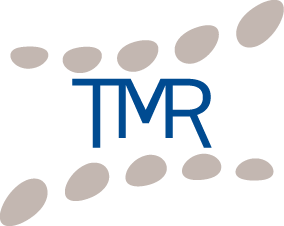Global Retail Property Management/Leasing Firm

This firm came to TMR with an urgent need to overhaul their mobile device environment. The project consisted of 4 phases, all coordinated simultaneously with IT, end users, and accounts payable to ensure a quality experience for all involved.
Phase 1: Migrate corporate owned devices to BYOD.
Phase 2: Establish Portal for stipend program enrollment.
Phase 3: Transition ALL mobile devices to new MDM software
Phase 4: Migration from Verizon to AT&T for corporate mobile devices.
Phase 1: BYOD Migration
TMR’s first initiative was to transition corporate owned mobile devices to BYOD, individual liable devices. This change would enable the company to provide stipend(s) to their employees (more on that later), while reducing their corporate wireless expenditures by over 40%.
This phase of the project was completed in less than 90 days, with 0% down-time for all mobile users. Over 200 lines of service were migrated to individual account(s), and users maintained their network access throughout the process!
Once corporate devices were migrated to individual accounts, each employee was entitled to a stipend from the company if they used their device for business. TMR worked with our client to develop a portal and process for enrollment in the program.
Phase 2: Establish Portal for Enrollment
During the planning stages of this project, TMR uncovered liability issues with the proposed method of cellular reimbursement. Our experts worked with our client to formulate a plan that would appease all parties involved and get their employees the stipend(s) they were promised!
TMR has a unique ability to customize and develop customer facing UI portals to match business needs, and this project fit the mold! As the migration from corporate to BYOD devices completed, users needed a mechanism to be reimbursed by the company for their cell phone use.
How would the company keep track of all these separate accounts?
How would the company accurately track payments to all these accounts?
In some cases, the burden to find these answers might fall on accounts payable, or the IT/Project Manager assigned to make all this happen; not with TMR! Our team developed a process and guidelines for the company, and their employees to follow to register their personal accounts in a customized, self-service portal, a mechanism for validating those entries each month, and instituted a monthly audit of active employees to ensure payments are only made for active team members. To date, TMR sends payments for more than 200 employees to 3 separate major cellular carriers as part of their BYOD program.
Phase 3: Transition Mobile Devices to new MDM platform
Just as technology rapidly changes, a business’s needs can also. With the completion of Phase 1, there was now another challenge to overcome.
How to protect corporate information on personal devices?
When devices were corporate owned, IT had the ability to dictate policies and device restrictions as needed on company equipment. Now that these devices were “individual” owned, employees were no longer bound by those policies. This inherently presents a security risk to the organization in many ways, and the IT & security team had to determine the best way to address that problem.
TMR quickly identified a potential issue with the current MDM configuration that prevented this company from differentiating between corporate and individual owned devices after the transition was completed. With their MDM contract up for renewal, a decision was made to make a change to the MDM software being deployed to corporate devices. This transition would allow the company to partition all corporate data to a separate application, move that data off local device storage, and prevent any unauthorized access to corporate data.
TMR worked with the client and all mobile users to transition devices to the new MDM environment successfully! With this transition, the client was able to containerize their company applications, moved all corporate data from local devices to the cloud, and enable MFA (Multifactor Authentication) as an added security measure when accessing company applications. Since inception of the new MDM platform, the company is not experienced any data breach resulting from corporate or personal owned mobile devices.
Phase 4: Migration from Verizon to AT&T
After successful completion of the first three phases, TMR kept the foot on the gas! While a majority of corporate owned devices were transitioned to personal, the company kept a significant number of devices to be shared/used at their retail locations. Even with the transition from corporate to BYOD, the company was still spending over $100,000 annually on corporate mobile devices.
TMR conducted an evaluation of all major US carriers, and negotiated custom pricing for this customer with AT&T. As a result of those negotiations, this customer was able to migrate their remaining corporate mobile devices to AT&T and save over $40,000/year making this change!
TMR worked with each individual location (and user) to walk through transition from their old vendor/device to their new AT&T device(s), enroll and secure each device within the MDM environment, and complete transition of all corporate data from old devices.
A multiphase project was no small task, but TMR stepped up and delivered! In summary, the client’s sentiment speaks for itself here:
“We are SO grateful to have such a DEDICATED team by our side. I’ll be honest I was skeptical at the beginning of all this and didn’t think it would be possible to pull this off. Your team’s involvement, strategic planning and execution was vital to the success of this project. Thank you TMR.” -EVP, IT & Infrastructure (Global Retail Management)
